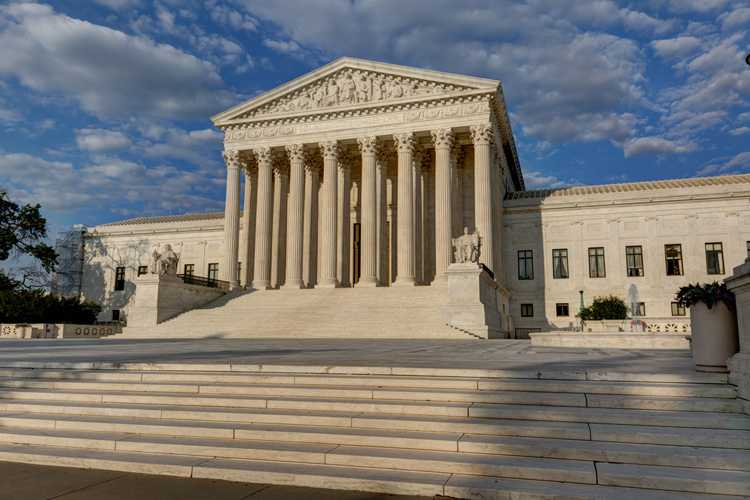Supreme Court says US can implement rule that bans most asylum applications at southern border

Image from Shutterstock.com.
The U.S. Supreme Court on Wednesday evening allowed a Trump administration rule to take effect that effectively bans asylum applications by most immigrants at the southern border.
The high court stayed a nationwide injunction barring implementation that had been imposed by U.S. District Judge Jon Tigar of San Francisco, report the Associated Press, the Washington Post and the New York Times. The stay remains in effect pending appeal.
Justice Sonia Sotomayor issued a dissent that was joined by Justice Ruth Bader Ginsburg.
The new rule says immigrants at the southern border must apply for and be denied asylum in at least one country they enter while on their way to the United States. An exception to the rule applies for victims of human trafficking. The rule effectively ends asylum for immigrants at the southern border who aren’t from Mexico.
Sotomayor and Ginsburg said the government was not entitled to a stay.
“Once again the executive branch has issued a rule that seeks to upend longstanding practices regarding refugees who seek shelter from persecution,” Sotomayor wrote. “Although this nation has long kept its doors open to refugees—and although the stakes for asylum seekers could not be higher—the government implemented its rule without first providing the public notice and inviting the public input generally required by law.”
The New York Times notes that the Supreme Court action follows its July decision to allow the Trump administration to go forward with plans to use $2.5 billion in military money to build the border wall.
In the latest case, Solicitor General Noel Francisco had argued the government could bypass notice and comment requirements for new rules under exceptions for foreign affairs and good cause. Francisco said there is good cause for immediate implementation to avoid a surge of immigrants at the border.
Tigar had twice imposed nationwide injunctions in the case. The San Francisco-based 9th U.S. Circuit Court of Appeals narrowed the reach of the first injunction last month to states within the circuit. On remand, Tigar heard additional evidence and restored the nationwide injunction on Monday, spurring the 9th Circuit to issue an administrative stay that once again limited the injunction to states within the circuit while it considered the broader injunction.
Sotomayor argued the case should be allowed to play out in the lower courts. “Granting a stay pending appeal should be an ‘extraordinary’ act,” Sotomayor wrote. “Unfortunately, it appears the government has treated this exceptional mechanism as a new normal. Historically, the government has made this kind of request rarely; now it does so reflexively.”
The case is Barr v. East Bay Sanctuary Covenant.



